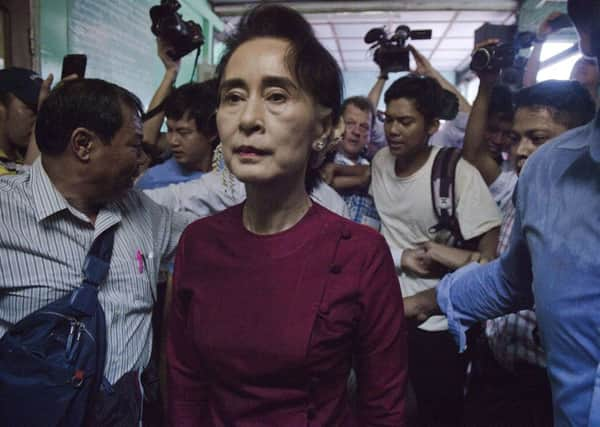Burmese government vows ‘peaceful transfer’ of power


Ms Suu Kyi’s National League for Democracy (NLD) said it received a message from information minister Ye Htut on behalf of president Thein Sein congratulating it for leading the race for parliamentary seats in Sunday’s election.
The minister said the government will pursue a peaceful transfer of power “in accordance with the legislated timeline”.
Advertisement
Hide AdAdvertisement
Hide AdThe message helps remove lingering concerns that the military, which has a large influence over the ruling party, may deny the NLD power, as it did after elections in 1990.
It also means that Burma is likely to soon have its first government in decades that is not under the military’s sway.
But while an NLD victory virtually assures it of being able to elect the president as well, Ms Suu Kyi remains barred from the role by a constitutional provision inserted by the military before it transferred power to a quasi-civilian government in 2011.
Ms Suu Kyi has declared, however, that she will become the country’s de facto leader, acting “above the president,” if her party forms the next government.
She described that plan further in a TV interview on Tuesday.
She said: “I make all the decisions because I’m the leader of the winning party. And the president will be one whom we will choose just in order to meet the requirements of the constitution. He [the president] will have to understand this perfectly well that he will have no authority; that he will act in accordance with the positions of the party.”
The military, which took power in a 1962 coup and brutally suppressed several pro-democracy uprisings during its rule, gave way to a nominally civilian elected government in 2011.
But it installed retired senior officers in the ruling party to fill cabinet posts and gave itself control of powerful ministries and a quarter of the seats in the 664-member, two-chamber Parliament.
Advertisement
Hide AdAdvertisement
Hide AdIn a state of emergency, a military-led body can even assume state powers. And a provision bars Ms Suu Kyi from the presidency as her sons hold foreign citizenship.
The Union Election Commission has announced the results of 151 lower house races, of which 135 were won by the NLD.